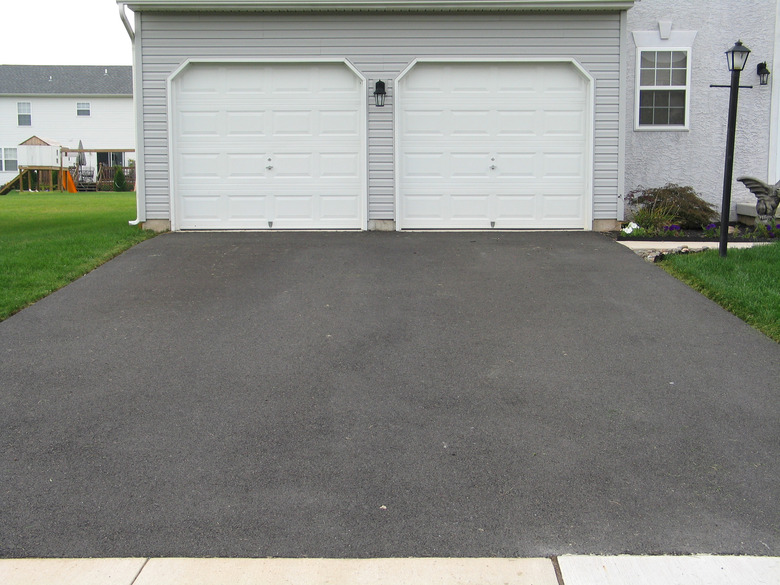Pros And Cons Of Driveway Sealer
An asphalt driveway is more affordable to install than a concrete driveway. It's also as durable as concrete when sealed right. Sealing asphalt protects the surface from cracks so it will last longer. However, there are a few pros and cons of sealing an asphalt driveway that you should know before starting this project on your property.
Benefits of Sealing an Asphalt Driveway
Benefits of Sealing an Asphalt Driveway
It's necessary to protect the asphalt driveway from water damage, extreme heat, erosion and cracks to avoid future repairs or maintenance. Several elements could easily get in between the driveway's surface that will damage its base material when the asphalt isn't sealed well. This damage might expand and become potholes that can damage your car or cause accidents.
Sealing an asphalt driveway also helps with the curb appeal of your house. It will lend a dark, sleek and smooth finish to a grey asphalt driveway, which can increase the value of your property.
In most cases, an asphalt and pavement contractor might recommend using blacktop for the installation, repair and maintenance of the driveway. This has the identical composition as asphalt, but it's mixed with rock, stone and sand to strengthen and solidify the pavement. Asphalt is generally used for larger public roads, while blacktop is more ideal for residential properties.
Drawbacks of Sealing an Asphalt Driveway
Drawbacks of Sealing an Asphalt Driveway
Sealing an asphalt driveway can be expensive initially, so you need to set a budget for this. Once sealed, your driveway will also require resealing every three years or so. While this won't be as costly as the first seal coating, it will still count as an expense you'd have to prepare for.
You can reduce the need for resealing if you use the highest-quality seal coating. Also, weigh the cost of resealing versus the cost of repairs you'll have to do if you don't seal the asphalt driveway to make an informed decision.
Best Time to Seal an Asphalt Driveway
Best Time to Seal an Asphalt Driveway
Newly installed asphalt driveways need at least six months of curing time before sealing. The best time to seal an asphalt driveway is during warm weather so the sealant can cure, bond and dry completely.
The driveway's pavement temperature must never dip below 50 degrees Fahrenheit while work is underway. Also, consider that there needs to be a 24- to 72-hour wait in between applying each layer of sealant, so you have to ensure that there's good sunshine for several days.
It may be best to work on the asphalt driveway repair at a time of year when there are fewer rain showers and humidity in your area. Rain or moisture can severely impact the drying process and quality of the driveway.
Depending on the quality of the job, climate factors and driveway usage, a sealed asphalt driveway can last for 15 to 20 years with some maintenance. The driveway should be resealed every three to five years so the asphalt will remain water-resistant. Regularly cleaning the asphalt from debris and dirt will also help maximize the benefits of having a sealed driveway.
